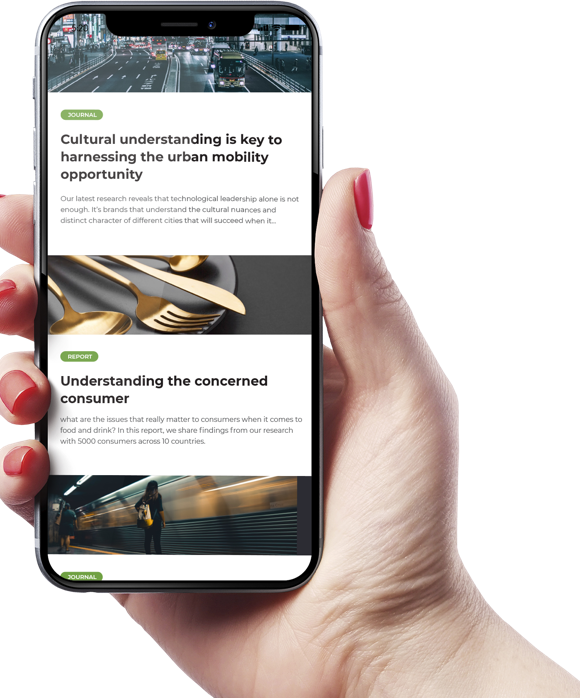Big data and advanced analytics are hot. Voluminous sets of data can be processed automatically using technology. But the data becomes useful only when it is converted into meaningful information. While Big Data has become the buzzword today, it is of little use if it’s not profitably analyzed.
The global Big Data and Analytics market is worth USD 274 billion. Around 2.5 quintillion bytes worth of data is generated each day. There are currently over 44 zettabytes of data in the entire digital universe.
So what is big data exactly, and how does it impact companies?
Get regular insights
Keep up to date with the latest insights from our research as well as all our company news in our free monthly newsletter.

Big data refers to large sets of data obtained from multiple sources, like medical records, government records, customer databases, mobile applications, search engines, business transactions, social networks, and other massive data sources. Big data may be structured or unstructured, allowing brands to manage large amounts of data more efficiently. Many organizations are moving away from legacy systems and consolidating data to make the research process seamless, cost-effective, and efficient.
Technologies like text analytics help market researchers examine large amounts of information and data in real-time to track consumers’ sentiments and detect potential brand reputation issues before they become serious.
Big data market research is invaluable for brands as it combines consumer and behavioral data with advanced analytics to enable faster decision-making that yields improved business outcomes. When big data and market research converge, everyone wins because it results in better, more relevant products and services for the consumer and a competitive advantage for the brand.
Big data and market research convergence allow brands to dig into data to uncover the “why” behind the numbers. Let’s say, for instance, a brand uses data mining to discover a sudden decline in the market share for a high-end product in a specific market. Using market research methodologies, it studies a sample of consumers that have exhibited a change in buying behavior to unearth what led to the change. Was it a new product that entered the market, or did they reduce spending due to the economic climate?
These reasons are not presented in the data, and market research can help uncover the “why” behind a data set.
Today, the digital consumption of information, products, and media makes everything measurable on a large scale. Social media analytics is an example of big data used on a massive scale globally.
How does big data impact business?
A 2020 study showed that around 94 percent of organizations believe data and analytics are essential to growing their brand and supporting digital transformation. The study also found that the financial, hospitality, telecoms, and retail industries invest the most in big data and analytics.
Big data in the Banking and Financial Services sector
The application of big data analytics has allowed financial services companies and banks to become more efficient, customer-centric, and competitive. This industry utilizes big data to make transactions, trading, and financial activities seamless for their employees and customers.
Retail and eCommerce
The eCommerce and retail industries collect data through their Point of Sale (POS) systems, loyalty programs, and website browsing behavior. It also helps with inventory replenishments.
In the eCommerce industry, knowing your customers can unlock conversions and profits. Big data on real-time consumer behavior, purchase history, and consumer preferences can help online stores recommend the most relevant products and offer them to consumers at the right time. Big data enables e-stores to conduct competitive analyses and pricing to lure consumers. Above all, technology allows online retailers to offer personalization, superior customer service, and experience.
While these industries invest heavily in big data, they are not the only ones. Many sectors like manufacturing, logistics, media, oil and gas, and healthcare are investing large sums of money in adopting this technology to manage their data efficiently.
Big Data analytics for the healthcare industry is expected to reach USD79.23 billion by 2028.
For most companies, data is fragmented, and brands are looking for people who can analyze and use data to optimize all business processes and functions.
Big data impacts not only the private sector but also the public sector. For governments, big data has many applications, including health-related research, financial markets research, fraud detection, public safety, transportation, and environmental protection, to name a few.
Advantages of Big Data
Massive organizations like Google, Facebook, and Amazon have proved how big data can build big brands. These organizations have capitalized on big data mining and analytics to grow their brands and boost market valuations.
One of the most significant advantages of big data is the ability to make informed decisions based on hard data and facts.
Big data is valuable for consumers too. In the information age, the consumer can access ratings, product reviews, and an easier means of providing instant real-time feedback. This allows consumers to make informed choices.
What are the challenges with big data and analytics?
As recently as last year, Facebook’s Mark Zuckerberg, Google’s Sundar Pichai, and Jack Dorsey of Twitter had to testify before Congress about the steps they have taken to deal with data privacy.
Consumers have become more data savvy and are concerned with privacy issues and breaches. <add stats on #s ready to share data for more relevant messaging)
Business outcomes are only as good as the data; high-quality data (link) is of utmost importance. Researchers and brands must be cautious about the data sources and methodologies to obtain the most accurate, reliable, and relevant data.
The big data market is poised for phenomenal growth in the coming years. With the development of technology penetration across all areas of life, digitization, and the widespread use of smartphones globally, large amounts of data are produced every second. This has led to the need for data analysis and big data.
As brands apply big data, they make data-driven decisions faster and can respond quickly to market changes. This has a direct impact on their bottom line. But data is not enough; there has to be a fusion of data science with marketing science to help market research become more effective.
Kadence International helps leading brands make game-changing decisions. If you are looking for a research partner to help better understand your customers, we would love to help. Fill out our Request for a Proposal here.


 Senior Marketing Executive
Senior Marketing Executive Sales & Marketing
Sales & Marketing General Manager PR -Internal Communications & Government Affairs
General Manager PR -Internal Communications & Government Affairs Vital Strategies
Vital Strategies
 Customer Intelligence Director
Customer Intelligence Director